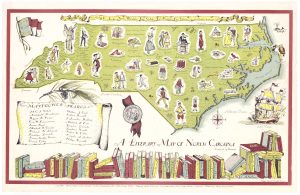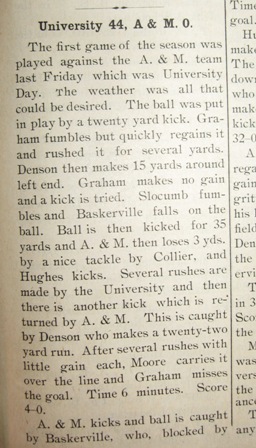
You’ve got the credit card out and you’re ready to do your holiday shopping. You’ve worked your way down the list. Blender for the margarita lover? Check. Leatherman for the handyman? Check. Wii for the kids? Ok, why not? But what should you buy for the dog-loving reader who can’t stop talking about his Tar Heel roots?
No need to take your hand off the keyboard (Okay, maybe you’ll need to click the mouse). Our colleagues at UNC-G have created a Literary Map of North Carolina (their site includes a few more writers than the map above, produced by the NC English Teachers Association in 1950). The rich, searchable database allows you to search in a host of ways, including the author’s hometown, the towns in which her works are set and the genres in which she writes.
Click on “Adventure Fiction.” Ah, yes, there it is. The perfect gift. John Sergeant Wise’s Diomed: The Life, Travels, and Observations of a Dog, (Truth be told, the book’s author was a Virginian and only a small bit of the plot is set in N.C. But when a Virginian deigns to mention the Tar Heel State we like to note it). Originally published in 1897, Diomed has just been reprinted. You’ll find it at your favorite online book retailer. And when the dog lover gives you a big wet smooch as a thank you for your gift, just remember who should really get the credit (no smooch required).


